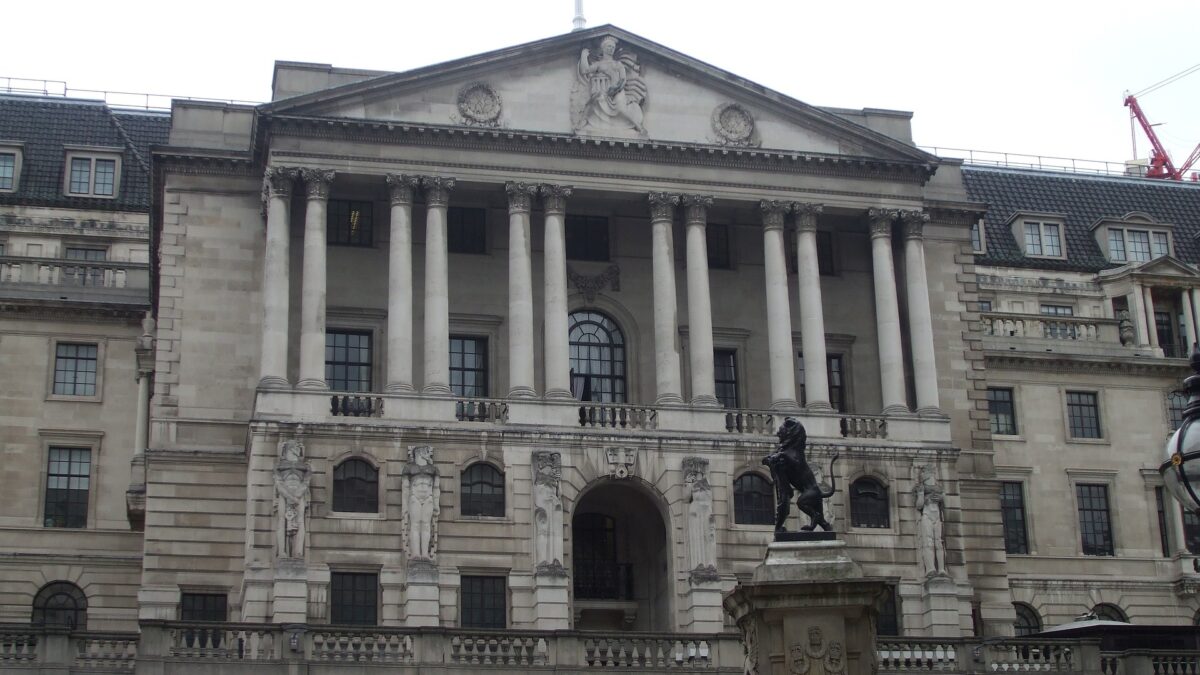
Interview with Simranjeet Kaur Mann, Trainee Solicitor at Womble Bond Dickinson LLP
February 24, 2023
Peaks and Troughs: A Forecast for the Car Industry in 2023
February 25, 2023Article by Simran Bhuhi
As we all know, the issue of the cost of living has become a prominent issue in day-to-day life. This article will discuss the possible implications and effects of inflation and the increase in interest rates.
Has The Bank of England halted the rapid rise of inflation?
Due to the impacts of the COVID-19 pandemic that was the catalyst for the soaring inflation, on the 15th of December 2022, the Bank of England increased the UK rate to 3.5%. Although recent economic data has remained mixed, it was the Bank’s latest attempt to beat this issue of rising inflation.
Despite the recent fall in inflation to 10.5% in November 2022, the Bank of England is expected to raise interest rates in February 2023 for the 10th time in succession. Granted, this may seem like a light relief for households however, it is evident that prices are still high and rising fast. For instance, food and drink inflation has accelerated to a whopping 16.85%, the highest level since 1977.
Households, Businesses and 2023
The Bank of England must proceed with caution as households are still cutting back on spending and confidence within businesses are weak. The UK as an audience witnessed during COVID, the number of businesses that ended up closing, especially small-medium sized businesses (SMEs). Earlier rate increases have yet to reach their full impact, and with the cost of living still high, these are significant alarm bells. Furthermore, the risk of a UK recession and the Office for Budget Responsibility forecasting inflation to drop below 4% by the end of 2023, raises queries on the necessity of future possible rate increases.
Ultimately, these unanswered questions as to when the rate will drop are heavily dependent on the level of persistent inflation and wage pressures that remain over the next six months.
The effects of higher interest rates
However, according to analysts rising rates are more than likely to proceed. It has been suggested that rates could rise to 4.5% by the middle of this year. Consequently, this peak is lower than suggested predictions when the government was in trouble after its ‘mini budget’ was negatively received.
The Bank’s Monetary Policy Committee holds meetings, eight times a year to come to a shared consensus over the interest rate policy. Inflation must remain at 2% and the pressure to remain at this figure is evidently difficult. Having said that, prices are rapidly rising at 10.7% which is more than five times that level.
Higher interest rates can have a variety of negative effects on both individuals and the economy. It causes an increase in the cost of borrowing, making it more expensive for people to take out loans and credit cards. This discourages spending and borrowing, leading to a decrease in consumer demand for goods and services. People who already have loans will have to spend more on interest payments, leaving them with less disposable income.
Subsequently, the housing market is also affected, with an increase in mortgage interest payments. This can have a significant impact on consumer spending, as a 0.5% increase in interest rates can add an additional £60 per month to the cost of a £100,000 mortgage. Higher interest rates also incentivise saving rather than spending, as it makes deposit accounts more attractive. Additionally, it increases the value of a currency, making exports less competitive, and reducing aggregate demand in the economy. The government also faces an increase in debt interest payments, which could lead to higher taxes in the future.
Rising interest rates can also reduce confidence, as it discourages investment, making firms and consumers less willing to take on risky investments and purchases. Lack of confidence in this circumstance goes hand in hand with trust. Firms and consumers will have difficulty gaining trust with one another in terms of the validity of their investments and business deals. Overall, higher interest rates could harm the economy and individuals’ financial situations.
Essentially, both the economy as a whole and individuals are affected. We can see the cost-of-living crisis and rise in rates has even affected coffee prices. Interest rates have compromised even the small luxuries people may have taken for granted such as coffee, eating out, shopping and even travel. Not as detrimental as the effects of rates listed above, but this just emphasises how interest rates have even compromised the smallest aspects of life. Coffee.
What are the implications for those working within the legal sector?
For law firms and chambers, the continuing increase of inflation rate and potential interest rate increase may impact prospective clients’ financial stability and ability to make payments. It may also affect their own operations, especially regarding their own financing and budgeting processes.
Rising interest rates can also make it more expensive for law firms to borrow money, which may impact their ability to invest in new technology or expand their operations. Ultimately, risking their reputation and causing concern of uncertainty about the validity of the firm. Additionally, rising inflation and interest rates can lead to economic uncertainty, which can result in a decrease in demand for legal services. This can make it more difficult for law firms to maintain their revenue and profitability.
Within the new year, organisations need to keep a close eye on economic developments and adjust their strategies accordingly.
Conclusion
The rise of interest rates has affected, the economy, businesses, firms, and individuals. Ever since the emergence of COVID, the economy has struggled to maintain its strength and unity which has impacted the UK. Consequently, with the cost of living now being difficult for most, it leaves a sense of uncertainty about what 2023 has in store for all those affected.





